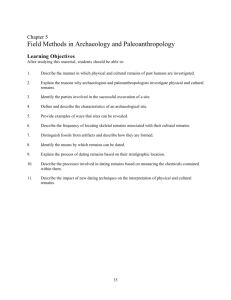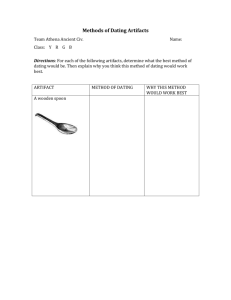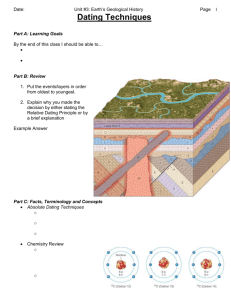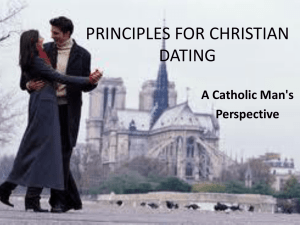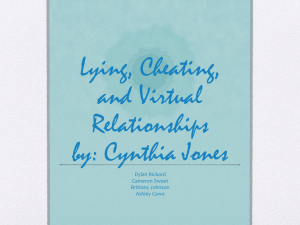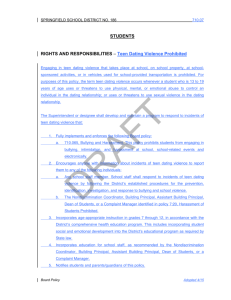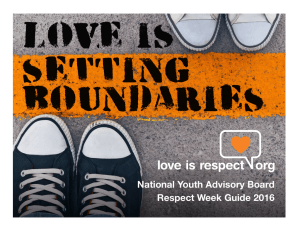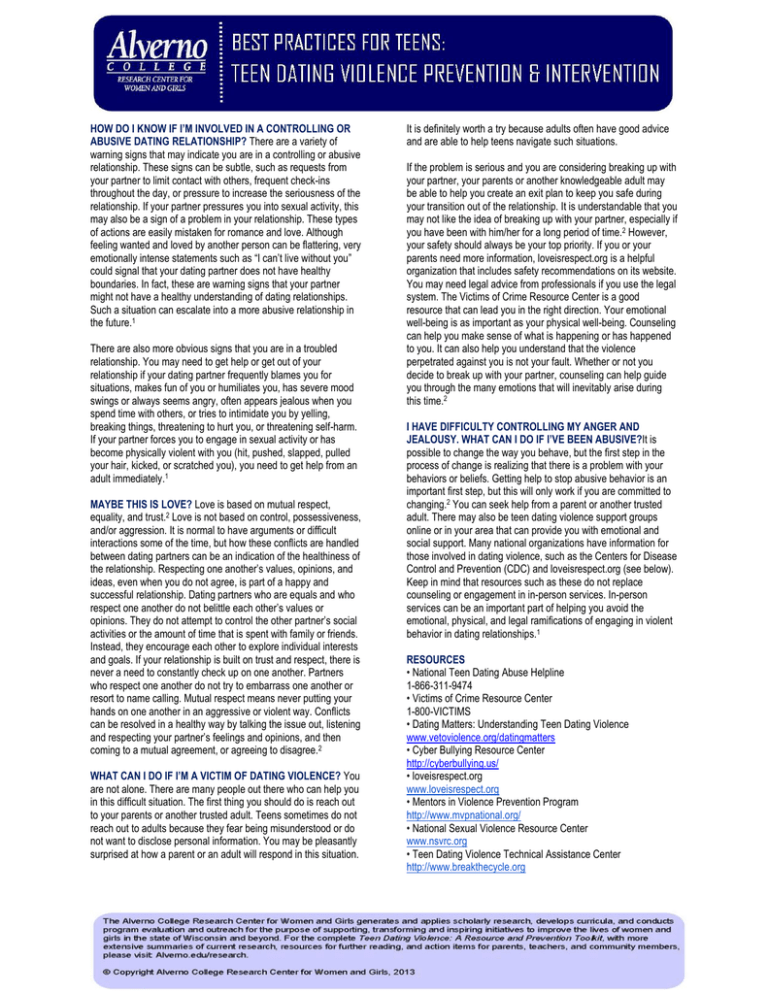
HOW DO I KNOW IF I’M INVOLVED IN A CONTROLLING OR
ABUSIVE DATING RELATIONSHIP? There are a variety of
warning signs that may indicate you are in a controlling or abusive
relationship. These signs can be subtle, such as requests from
your partner to limit contact with others, frequent check-ins
throughout the day, or pressure to increase the seriousness of the
relationship. If your partner pressures you into sexual activity, this
may also be a sign of a problem in your relationship. These types
of actions are easily mistaken for romance and love. Although
feeling wanted and loved by another person can be flattering, very
emotionally intense statements such as “I can’t live without you”
could signal that your dating partner does not have healthy
boundaries. In fact, these are warning signs that your partner
might not have a healthy understanding of dating relationships.
Such a situation can escalate into a more abusive relationship in
the future.1
There are also more obvious signs that you are in a troubled
relationship. You may need to get help or get out of your
relationship if your dating partner frequently blames you for
situations, makes fun of you or humiliates you, has severe mood
swings or always seems angry, often appears jealous when you
spend time with others, or tries to intimidate you by yelling,
breaking things, threatening to hurt you, or threatening self-harm.
If your partner forces you to engage in sexual activity or has
become physically violent with you (hit, pushed, slapped, pulled
your hair, kicked, or scratched you), you need to get help from an
adult immediately.1
MAYBE THIS IS LOVE? Love is based on mutual respect,
equality, and trust.2 Love is not based on control, possessiveness,
and/or aggression. It is normal to have arguments or difficult
interactions some of the time, but how these conflicts are handled
between dating partners can be an indication of the healthiness of
the relationship. Respecting one another’s values, opinions, and
ideas, even when you do not agree, is part of a happy and
successful relationship. Dating partners who are equals and who
respect one another do not belittle each other’s values or
opinions. They do not attempt to control the other partner’s social
activities or the amount of time that is spent with family or friends.
Instead, they encourage each other to explore individual interests
and goals. If your relationship is built on trust and respect, there is
never a need to constantly check up on one another. Partners
who respect one another do not try to embarrass one another or
resort to name calling. Mutual respect means never putting your
hands on one another in an aggressive or violent way. Conflicts
can be resolved in a healthy way by talking the issue out, listening
and respecting your partner’s feelings and opinions, and then
coming to a mutual agreement, or agreeing to disagree.2
WHAT CAN I DO IF I’M A VICTIM OF DATING VIOLENCE? You
are not alone. There are many people out there who can help you
in this difficult situation. The first thing you should do is reach out
to your parents or another trusted adult. Teens sometimes do not
reach out to adults because they fear being misunderstood or do
not want to disclose personal information. You may be pleasantly
surprised at how a parent or an adult will respond in this situation.
It is definitely worth a try because adults often have good advice
and are able to help teens navigate such situations.
If the problem is serious and you are considering breaking up with
your partner, your parents or another knowledgeable adult may
be able to help you create an exit plan to keep you safe during
your transition out of the relationship. It is understandable that you
may not like the idea of breaking up with your partner, especially if
you have been with him/her for a long period of time.2 However,
your safety should always be your top priority. If you or your
parents need more information, loveisrespect.org is a helpful
organization that includes safety recommendations on its website.
You may need legal advice from professionals if you use the legal
system. The Victims of Crime Resource Center is a good
resource that can lead you in the right direction. Your emotional
well-being is as important as your physical well-being. Counseling
can help you make sense of what is happening or has happened
to you. It can also help you understand that the violence
perpetrated against you is not your fault. Whether or not you
decide to break up with your partner, counseling can help guide
you through the many emotions that will inevitably arise during
this time.2
I HAVE DIFFICULTY CONTROLLING MY ANGER AND
JEALOUSY. WHAT CAN I DO IF I’VE BEEN ABUSIVE?It is
possible to change the way you behave, but the first step in the
process of change is realizing that there is a problem with your
behaviors or beliefs. Getting help to stop abusive behavior is an
important first step, but this will only work if you are committed to
changing.2 You can seek help from a parent or another trusted
adult. There may also be teen dating violence support groups
online or in your area that can provide you with emotional and
social support. Many national organizations have information for
those involved in dating violence, such as the Centers for Disease
Control and Prevention (CDC) and loveisrespect.org (see below).
Keep in mind that resources such as these do not replace
counseling or engagement in in-person services. In-person
services can be an important part of helping you avoid the
emotional, physical, and legal ramifications of engaging in violent
behavior in dating relationships.1
RESOURCES
• National Teen Dating Abuse Helpline
1-866-311-9474
• Victims of Crime Resource Center
1-800-VICTIMS
• Dating Matters: Understanding Teen Dating Violence
www.vetoviolence.org/datingmatters
• Cyber Bullying Resource Center
http://cyberbullying.us/
• loveisrespect.org
www.loveisrespect.org
• Mentors in Violence Prevention Program
http://www.mvpnational.org/
• National Sexual Violence Resource Center
www.nsvrc.org
• Teen Dating Violence Technical Assistance Center
http://www.breakthecycle.org

